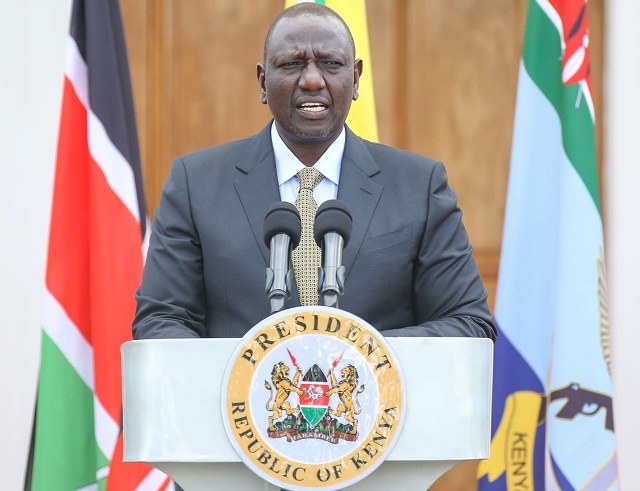
Nairobi, Kenya | BBC | After a day of protest, turmoil and bloodshed, Kenyan President William Ruto addressed the nation with a message of sadness and strength Tuesday.
Saying “legitimate” protests against his policies had been “hijacked by a group of organised criminals,” he warned his government would use all means at its disposal to prevent a repeat of the violence – “at whatever cost”.
“Today’s events mark a critical point on how we respond to threats to our peace,” he said. “We will ensure a situation of this nature does not recur again.”
The president’s message was an attempt to seize back control after days of street protests which have grown in strength and number. On Tuesday, they escalated with at least five people shot dead and hundreds injured.
But in the longer term some around Mr Ruto must fear that things might not be so simple, and that the prospect of tough choices remain.
Elected in 2022 pledging to cut corruption, shore up the country’s faltering economy and help the poor, the embattled Mr Ruto now faces an unprecedented rebellion against a bill he says he is an essential part of his plan to build the nation.
It might be easier to know which way to turn if the opposition Mr Ruto faces were confined within parliament.
An astute political player, deputy president for almost a decade before being elected to the top spot, Mr Ruto has years of experience wrangling politics to get things done.
Now though, the forces massed against him are something truly beyond his control.
A movement which grew organically out of discontent expressed on social media has grown into a powerful rebellion which has filled the streets of towns across the country.
In the capital, the Nairobi governor’s office, city hall and the country’s parliament were this afternoon all set ablaze.
The protestors had started the day threatening a “total shutdown”.
And at the end of a day of chaos and panic across the country, often set against the sound of teargas and at times live fire from police, there is no doubt their fury has been heard.
In response, Mr Ruto has chosen not to yield to the demands of the demonstrators by abandoning his budget – but has pushed back against them in an effort to calm the country.
Some in his government might wonder whether that position can hold, and where it leaves his controversial finance bill in the longer term.
ernment beyond cutting services or raising taxes.
 The Independent Uganda: You get the Truth we Pay the Price
The Independent Uganda: You get the Truth we Pay the Price





